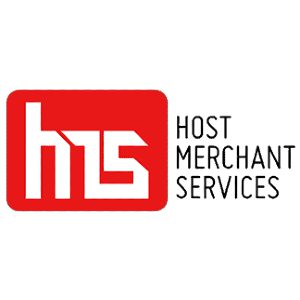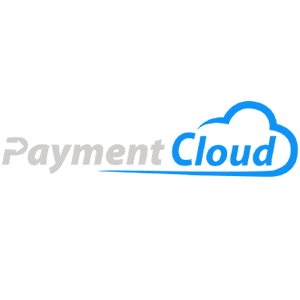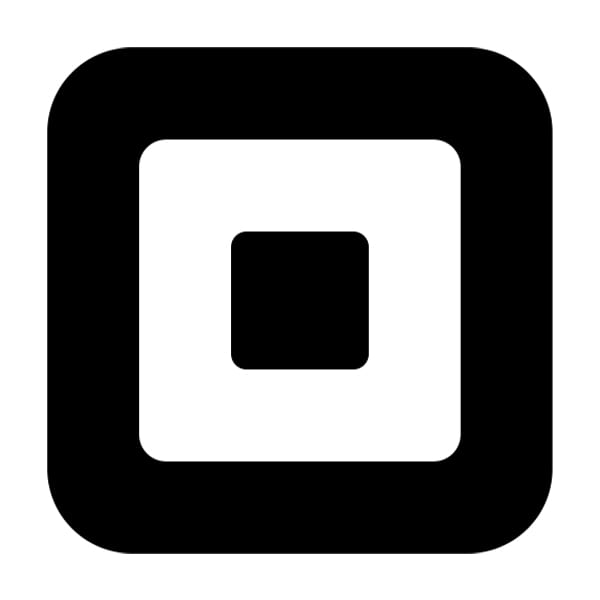Are you looking to accept card payments for your business in 2023? If so, understanding “what is a merchant account” is crucial. In this blog post, we will dive into the world of merchant accounts, exploring their role, benefits, types, costs, and popular providers. Let’s embark on this journey to ensure your business thrives in the ever-evolving world of electronic payments.
Short Summary
Merchant accounts provide businesses with secure payment processing solutions to facilitate transactions and stay competitive.
Different types of merchant accounts are available, including retail, e-commerce, and mobile options.
It is important to compare providers based on fees, features & customer support when selecting the right provider for your business needs.
Understanding Merchant Accounts

A merchant account is a secure payment processing solution allowing businesses to accept electronic payments, such as credit or debit card transactions, including online transactions. Merchant account services cater to various industries, from retail to e-commerce and mobile businesses, facilitating seamless and secure transactions, ensuring customer satisfaction.
In a world where cash payments are increasingly less common, having a merchant account is essential for businesses to stay competitive and meet customer expectations. It allows businesses to accept payments quickly and securely, providing customers with a convenient and reliable payment method.
The Role of a Merchant Account
A merchant account serves as a bridge between a customer’s bank and a business’s bank, enabling the movement of funds during a transaction. The account agreement comprises per-transaction costs charged by the bank, the bank’s card processing network, established fee structures with the network of card processors, and any monthly or annual fees levied by the bank for various services.
For businesses looking to expand and accept payments from a variety of customers, a payment gateway, payment processor, and a merchant account are essential, often bundled together into one comprehensive solution.
Benefits of Having a Merchant Account
Having a merchant account offers numerous advantages to businesses. By facilitating credit and debit card payments, a merchant account can result in increased sales, improved cash flow, and enhanced customer convenience.
In today’s fast-paced world, customers expect diverse payment options, including card payments and electronic transactions. A merchant account allows businesses to cater to these expectations, ensuring customer satisfaction and fostering business growth.
Types of Merchant Accounts

Merchant accounts come in various forms, catering to different business needs. Whether you operate a brick-and-mortar store, an e-commerce platform, or provide services on-the-go, there’s a merchant account designed specifically for your business requirements.
Let’s delve deeper into the different types of merchant accounts, including retail, e-commerce, and mobile merchant accounts.
Retail Merchant Accounts
Retail merchant accounts are tailored for brick-and-mortar businesses, enabling them to accept credit card payments in person and securely deposit the funds into their bank account. By offering in-person payment processing, retail merchant accounts help businesses boost sales and customer satisfaction while mitigating the risk of fraud and granting access to additional payment options.
However, it’s essential to be aware of the associated costs, such as transaction fees and setup fees, to make informed decisions for your business.
E-commerce Merchant Accounts
E-commerce merchant accounts cater to online businesses, providing secure payment processing for online transactions through various payment processors. For instance, a business can accept card payments in person with a Stripe terminal and facilitate recurring payments and subscriptions. Companies like Stripe offer comprehensive online features, no startup or monthly fees, and competitive processing rates, making them an attractive choice for e-commerce businesses and B2B sellers.
These features make Stripe an attractive choice for businesses looking to accept payments online. Without no money.
Mobile Merchant Accounts
For businesses that need to accept payments on-the-go, mobile merchant accounts are the perfect solution. These accounts enable secure electronic payment processing via mobile devices, opening up opportunities to accept payments from customers in various locations, such as trade shows, festivals, or other events.
The costs associated with mobile merchant accounts can vary depending on the provider, generally including transaction fees, setup fees, and monthly fees.
Costs Associated with Merchant Accounts

While merchant accounts offer numerous benefits, it’s crucial to consider the costs associated with them. These costs include transaction fees and additional charges, which differ depending on the provider and the type of merchant account.
Let’s explore these costs in more detail, so you can make an informed decision when choosing a merchant account.
Transaction Fees
Transaction fees are charges that merchants pay to accept card payments, typically consisting of a percentage of the transaction amount plus a flat fee. These fees can range from 0.5% to 5.0% of the transaction amount, plus $0.20 to $0.30 per transaction, depending on the payment network, the type of credit card, and the merchant category code of the business.
Merchants may be able to reduce their transaction fees by negotiating with their payment processor, utilizing a different payment network, or accepting a different type of credit card.
Additional Fees
Apart from transaction fees, businesses should also be aware of additional fees that may be applicable, such as setup fees, monthly fees, gateway fees, and chargeback fees. A setup fee is a one-time charge incurred by the merchant for the initial establishment of their merchant account.
Monthly fees on a merchant account serve multiple purposes: covering the associated risks of electronic payment card transactions and providing the service of settling transaction funds to the merchant acquiring bank. Businesses should thoroughly research and understand these fees to avoid any surprises and ensure they choose the right merchant account provider.
Choosing the Right Merchant Account Provider

Selecting the right merchant account provider is crucial for your business’s success. It involves comparing options and considering factors such as fees, features, and customer support.
By carefully evaluating the available options, you can make an informed decision that best suits your business needs and ensures seamless payment processing.
Comparing Providers
When evaluating merchant account providers, it’s essential to compare their pricing models, contract terms, and available services to determine the best fit for your business needs. Looking into factors such as fees, reputation, payment options, security, and customer support will help you make an informed decision.
Remember, the right provider should be transparent about their pricing, have a solid reputation, offer a variety of payment options, prioritize security and compliance, and provide reliable customer support.
Key Considerations
When selecting a merchant account provider, some key considerations include the provider’s reputation, ease of integration with existing systems, and compatibility. Make sure to research the provider’s track record and history to ensure they are dependable and trustworthy.
Assess the ease of integration with existing systems to guarantee a seamless and efficient process. Finally, verify the compatibility of the merchant account provider with existing systems to ensure a successful partnership.
Setting Up a Merchant Account

Once you have chosen the right merchant account provider, it’s time to set up your merchant account. This involves an application process and approval based on various factors. By providing the necessary information, you can ensure a smooth and efficient setup process, paving the way for your business to start accepting electronic payments.
The application process typically requires you to provide information about your business, such as your business name.
Application Process
The application process for a merchant account requires businesses to provide pertinent information such as a tax ID, bank account details, and financial statements. It may also be beneficial to include a cover letter outlining the business and the reasons for applying for a merchant account.
Being prepared with the required documentation, such as your business license, EIN, articles of incorporation, and business bank account information, will help ensure a smooth application process.
Approval Factors
Approval factors for a merchant account include business history, risk level, and transaction type, with low-risk businesses more likely to be approved. Processing transactions in person while customers present their cards on hand can help reduce the risk of a business when applying for a merchant account.
By carefully considering these factors and providing the necessary documentation, businesses can improve their chances of being approved for a merchant account.
Popular Merchant Account Providers

Several popular merchant account providers offer a range of services and pricing models to suit different business needs. In this section, we will explore some of these providers, including Helcim, CDG Commerce, Host Merchant Services, PaymentCloud, and Square, to help you make an informed decision.
Each provider offers different features and benefits, so it’s important to compare them to find the best deal.
Helcim

Helcim is a payment processing provider specializing in merchant accounts, offering transparent pricing, no long-term contracts, and a range of features for established businesses. With its straightforward pricing model and user-friendly interface, Helcim has become a popular choice among businesses looking for a reliable and cost-effective merchant account solution.
Helcim offers a range of features to help businesses manage their payments, including fraud protection. Get all of the detail about this credit card processor in our in-depth Helcim review.
CDG Commerce

CDG Commerce is a respected merchant account provider offering comprehensive payment processing services to merchants. They provide competitive pricing with no additional fees, discounts for high-volume merchants, a secure and user-friendly payment gateway, and outstanding customer support available 24/7.
CDG Commerce’s affordable pricing and excellent service make it an attractive option for businesses seeking a reliable merchant account provider. Learn everything you need to know in our CDG Commerce review.
Host Merchant Services

Host Merchant Services is a US-based merchant services provider, offering credit card and electronic payment processing services to merchants. They provide tailored pricing and services to meet the needs of small-to-medium-sized businesses, helping them reduce processing fees and enhance customer satisfaction.
With their personalized service, competitive rates, and variety of payment solutions, Host Merchant Services is an excellent choice for businesses seeking a merchant account provider. See our Host Merchant Services review to research all the details.
PaymentCloud

PaymentCloud specializes in high-risk merchant accounts, offering customized solutions and dedicated customer service. They provide a secure payment gateway, direct cart integration, fraud and chargeback prevention, and continuity subscription merchant accounts.
For businesses operating in high-risk industries, PaymentCloud is an ideal merchant account provider, ensuring the necessary support and tailored solutions to effectively manage risks. To find out if this merchant account provider is right for your business, see out PaymentCloud review.
Square

Square is a popular choice for small businesses, offering flat-rate pricing, a user-friendly interface, and a range of hardware and software options. With its low startup costs, competitive processing rates, modern interface, and advanced POS capabilities, Square has become a go-to merchant account provider for businesses looking to accept credit card payments with ease and convenience. See what kind of businesses should use this mobile payment provider in our Square review.
Summary
In conclusion, understanding merchant accounts is crucial for businesses looking to accept electronic payments and thrive in today’s fast-paced, digital world. By carefully considering the different types of merchant accounts, associated costs, and popular providers, you can make an informed decision that best suits your business needs and ensures smooth payment processing. Remember, the right merchant account provider can significantly impact your business’s success, so choose wisely and invest in a solution that will help your business grow and prosper.
Frequently Asked Questions
A merchant account is a specialized bank account that allows businesses to accept credit card and other forms of electronic payments. Examples include Square, PayPal, Stripe, or any payment facilitator service.
A merchant account is a type of business bank account that enables businesses to process electronic payments such as debit and credit cards. It acts as the intermediary between the card swipe and the deposit of the money into a business account, allowing companies to accept various forms of payment for online transactions.
This makes it easier for businesses to accept payments from customers, as well as providing a secure and reliable way to process payments. It also helps to reduce the risk of fraud and chargebacks, as well as the risk of fraud and chargebacks.
A merchant account is a type of business bank account that allows businesses to accept and process debit and credit card transactions, as well as other forms of electronic payments. It acts as a bridge between the customer’s credit account and the business checking account and requires partnering with a merchant acquiring bank for communication in the payment transaction.
Merchant acquiring banks are responsible for providing the merchant account with the necessary technology and services to process payments. They also provide the merchant with the necessary tools to manage their transactions, such as fraud protection, customer service, and reporting. Merchant acquiring banks.
No, a merchant account is not the same as a bank account. A merchant account allows businesses to process credit and debit card payments, while a business bank account manages all of their funds.
Merchant accounts act as intermediaries between businesses and the individual card-issuing banks.
Having a merchant account offers numerous advantages, including increased sales, improved cash flow, and increased customer convenience.
It allows businesses to accept credit and debit card payments, as well as other forms of payment such as PayPal, Apple Pay, and Google Pay. This makes it easier for customers to purchase goods.

Douglas Waith
Just wanted to shoot you a quick note to say thanks for this article on merchant accounts and credit card processing. It was seriously helpful!
I’m just starting up my own business and your article really broke things down and made it all seem less intimidating. Your clear and easy-to-follow steps on how to set up a merchant account and start taking credit card payments are going to be a game-changer for my business.
Keep the good stuff coming! Really appreciate your work.